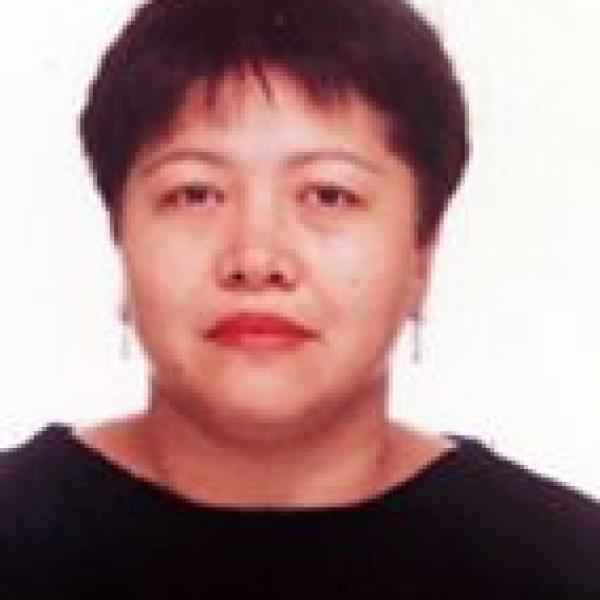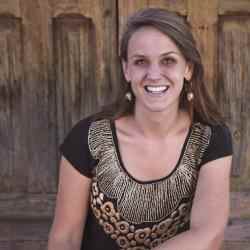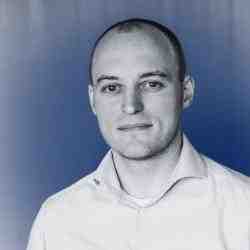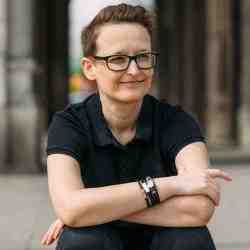Introdução
Committed to working with senior citizens, Maria de Lourdes Bráz has found a simple way to transform the standard assistance-based model, to which all government agencies and members of society conform, into an effective integration model.
A nova ideia
Working in one of the poorest favelas of Rio, Maria de Lourdes Bráz is dedicating her life to finding new solutions for one of Brazil's most disenfranchised groups: the very poor, elderly citizens of the country. Maria de Lourdes has established a low-cost Day Center as an alternative model to the private homes used by the wealthy of Brazil, and the poorly managed, state-run institutions that serve to hide away the rest of the country's older generation. At the core of Maria Lourdes' idea is the notion that services for the elderly should be provided by their communities, and that clients should remain fully integrated into their families and communities. She has built her center with an array of partnerships which range from the local municipality, to universities and hospitals, to local businesses and international donor agencies. Not only does the Center provide medical assistance but it works to guarantee senior citizens an active social life, a means for participating in the community, and the opportunity to continue to live–when possible–with their families. The Center itself provides better services for the elderly at one third the cost of state-run institutions, and is providing an example of how to leverage local resources, volunteers, and the seniors themselves in the most difficult of economically and socially circumstances.
O problema
The population of the state of Rio de Janeiro is close to 14.5 million people, and 12% of that total is made up of senior citizens. In Brazil as a whole, by the year 2020 there will be an estimated 16.2 million people over 65 years of age. Despite these statistics, there is no serious or effective public policy in place to deal with the issue or to offer a proactive life to seniors. Common wisdom still dictates that, no matter what level of social and economic resources older people possess, they will have to be removed from society at some point. If they are wealthy, they will go to special clinics that offer them dehumanized medical assistance. If they are poor, they will go to public asylums that function as deposits for human refuse. If they are alone or abandoned, they will remain so and never have the chance to live in a better conditions until they die. Compounding this socially-accepted notion of shutting away senior citizens, poverty is a crucial factor. For the majority of people, a retirement pension does not go beyond a minimum salary (today hovering at $130 per month). Brazil prioritizes repayment of the interest on the national debt over providing retirement pensions. The high level of unemployment in Brazil is obviously affecting people over 50 years of age as well; they are being fired to employ less expensive younger people, and are having great difficulties in finding other positions. Meanwhile, both government and private sector funding is being allocated overwhelmingly to children and adolescents. All BNDES (National Social and Economic Development Bank) funds are allocated to at-risk children. Similarly, the Brazilian foundations and institutions that make up the GIFE group (The Foundations, Institutions and Enterprises Group) serve the same sector. There are no public policies addressed to senior people and no action has yet been taken on proposals currently before the government. In Brazil, youth is worshipped as the source of beauty, productivity, success and credibility, a prejudice which strengthens discrimination against senior citizens on multiple levels.Two years ago, there was a big scandal in Rio de Janeiro when national television news coverage issued a report on the high number of senior citizens who died everyday in a private clinic due to lack of service and inadequate nourishment. Until that point, Brazil had always been considered a country of young people, and there is still a national blindness to the reality that everyone will indeed get old.
A estratégia
Maria de Lourdes' commitment is to transform this blindness into serious policies to open physical and theoretical spaces for the social integration of older people, with each other and into society at large. She believes that there is a vital and urgent need to work towards the concept of a healthy aging, and that this task must be a collective effort. To that end, through the center's work, her idea is also to disseminate a culturally positive image of aging. Maria de Lourdes is demonstrating an enormous capacity to sensitize and mobilize multidisciplinary staff and collaborators. One of her major successes in this area was to get support from the Municipal Secretary for Social Development, which traditionally had no program to support projects on senior issues. She has gained support from the city to provide nutritional resources for seniors, and salaries for basic staff such as cleaning people and cooks at her center. The Day Center provides much more than medical assistance, offering special diets, physiotherapy and psychological support, in addition to music and theatre lessons that develop body control. Moreover, the Center confronts legal issues such as the right to retirement salaries and benefits. Family orientation classes help relatives learn how to deal more sensitively with senior members of the family. Maria de Lourdes has created a network system of partnerships with professionals from health care centers and municipal hospitals to give special services to the Center's members, and is currently designing new programs with these professionals to enhance home services and social activities. She is now battling to inaugurate a program that will give priority services to seniors as a common rule for all hospitals and health care centers in the state of Rio de Janeiro. Maria de Lourdes has diversified her efforts across the board. She is running partnership programs with two important universities to facilitate an internship system for students in the areas of psychology and social service as part of the university program. She is also teaching families and seniors to raise their awareness of basic hygiene and health practices. Pursuing her vision of changing societal perception of elderly, Maria de Lourdes is giving training courses to youngsters from the community to become health agents. These training courses are given by professionals from the Scientific and Technical Association linked with the State Council to Defend the Rights of Senior People. In addition to that, she is also working with children and adolescents in the favelas, involving them as volunteers to the centers. Thus, she is exploring partnerships with other youth organizations to create more opportunities for youth to interact with their elders. Maria de Lourdes is implementing new literacy programs and training for caretakers. In addition, she is seeking to publicize her work as an effective model to stimulate volunteer work, solidarity action and the planning and execution of actions that can be easily disseminated and multiplied. In order to accomplish her goals, she is both consolidating and expanding the functions of her two Centers.Because the center is proving its efficiency and cost-effective structure, Maria de Lourdes has made an agreement with two of her early supporters to open a second Center, and are examining opportunities to open others in several communities in Rio de Janeiro and beyond. The core of Maria de Lourdes' strategy is based on her vision that each center has to be run by the senior citizens themselves in partnership with the community. The seniors must have an active voice in the management of events promoted by the centers, including fund-raising events such as bingo, lunches, theatre plays, and the work at the bakery that the center is building.
A pessoa
Maria de Lourdes was born in the interior of Paraiba, one of the poorest states of Brazil. She barely survived her childhood when her parents decided to migrate to Brasilia to try to find a better life there when she was only two years old. After a month traveling in trucks, her family, as illiterate people, began to work in all kinds of sub-standard employment linked with construction in Brasilia. When she was seven years old, her parents divorced, and she went to live with her father in a farm in the Central West interior. Having attended school formally for only one year and a half, Maria de Lourdes decided to run away to Rio de Janeiro when she was 18. In Rio, she found a job as a domestic employee, and began to study at night to get her grade school diploma. After that, she began to work in industry as a packager, and then as a store clerk. She decided then to finish high school and go to college. To get her college degree, Maria de Lourdes held internships in senior citizens' clinics, where she discovered a world of total dependence, isolation, and despair. As she began to think about the impoverished seniors she was working with, Maria de Lourdes was dissatisfied with her work at the senior clinic because there were no resources available to integrate the senior citizens with each other and with professionals. At that time, Maria de Lourdes heard that in Cidade de Deus, one of the biggest slums in Rio, a priest had closed a service center for seniors. She contacted him, and despite all of his negative warnings, she received funding from a private sector donor to rebuild the space and to begin a center there that would deal with the issue in a completely different way. Maria Lourdes' model center demonstrates her fundamental belief that senior citizens are not only capable of remaining active in community life, but have much to contribute. As she says, "Nobody is so poor and so old that they have nothing to offer."




